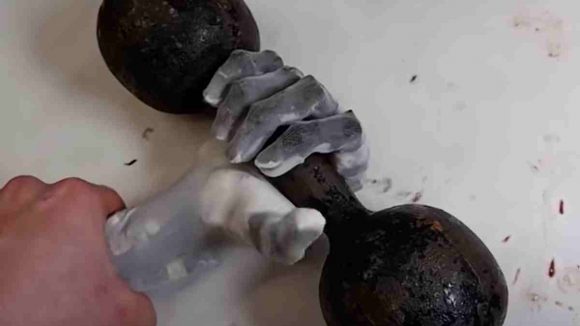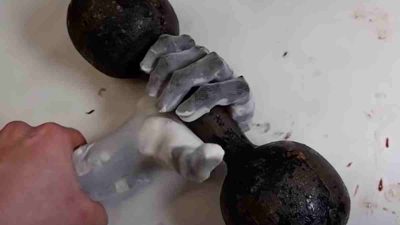A robotic arm, also known as the Clone Hand, is taking the world of technology by storm, and many speculate that it could even redefine warehouse operations. The company behind this water-powered arm, Clone, believes it’s the “most human-level musculoskeletal hand in the world.” It has proprietary hydraulic muscles and valves.
Fascinating as it might sound, it’s also realistic. It is the same size and biometric characteristics as a human hand. This means it includes half of the arm bone, an entire forearm, and a palm with all the possible degrees of movable freedom.
How Clone Hand works
Apart from being able to use robots for heavy lifting and automation work in warehouses, there is also more to the tech. Surprisingly, weighing in at only 0.75kg, the arm can operate items seven times its own weight, meaning it can handle anything up to 7kg. Battery-operated, it can work at full pace for two hours straight.
While many tech innovations cost an arm and a leg, Clone’s mission is to make them more affordable for commercial use.
“Clone has developed fast and inexpensive methods to produce Android components from reusable materials that can be obtained almost for free. Clone’s polymers are softer, lighter, cheaper, and better performing than metals,” explains the tech company.
Game changer for logistics
The Clone Hand can perform “intricate component fitting,” which helps any warehouse floor manager to “minimize human fatigue.”
Although it has human-like functionality, it still needs humans to operate. They call it a “natural and effective collaboration” between humans and robots.
Lastly, the Clone Hand improves quality control tasks with its “meticulous inspections,” aiming to improve accuracy and reduce errors.
Robotic arm to revolutionize
Who knew using hydraulic muscles could be a game changer in the logistics industry? Clone Hand can replicate human hand movements, which is meant explicitly for tasks previously deemed challenging for automation.
According to Deloitte’s corporate tech influencer in Europe, Lara Bothur, process mining is needed for this technology to be integrated effectively. “Especially in manufacturing… [it] requires deep process understanding, which is where process mining excels.”
She says it acts as a “workflow X-ray, pinpointing manual tasks ready for automation and showing how innovations like the Clone Hand can boost efficiency and easy physical work.”
What is process mining?
Process mining is a technique that uses the power of specialized algorithms to scrutinize data from information systems. According to American tech company IBM, process mining collects trends and patterns. It also gathers specific details about how processes operate in real time.
Why is process mining important? It bridges the gap between data science and process management. By enhancing workflows, it brings technology, innovation, and warehouse operations together. It acts as a catalyst for businesses to understand and improve their objectives.
According to Deloitte, the “seamless integration of process mining and artificial intelligence” will allow companies to “chat with your processes (ProcessGPT) effortlessly.” This way, Deloitte says bottlenecks within the vast data pools can be pinpointed easily.
Photo credit: Clone
About the author
Mia is a multi-award-winning journalist. She has more than 14 years of experience in mainstream media. She's covered many historic moments that happened in Africa and internationally. She has a strong focus on human interest stories, to bring her readers and viewers closer to the topics at hand.











